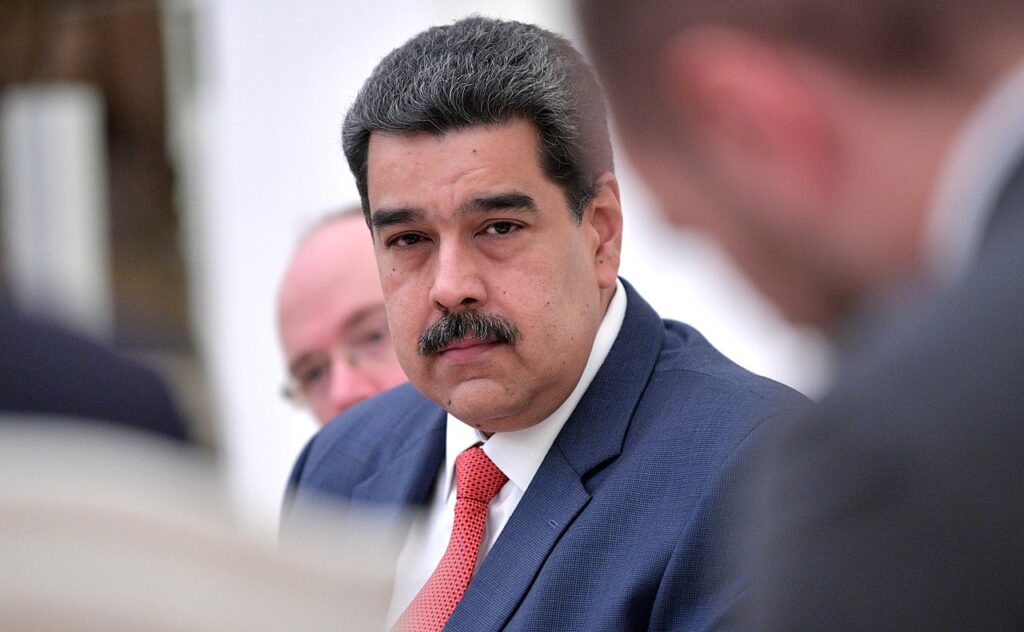Venezuela’s Political Turmoil: Trump and Biden’s Responses to Maduro’s Inauguration
Date: January 2024
Trump Sounds Alarm on Maduro’s Third Term
In the lead-up to his inauguration, President-elect Donald Trump issued a stern warning concerning the presidency of Nicolás Maduro, who was controversially sworn into office for his third term on Friday. Maduro’s election, which sparked outrage across the globe, has been marred by allegations of electoral fraud and a complete lack of credible evidence supporting his purported victory.
Despite the widespread criticism labeling him a “dictator,” Maduro is positioned to maintain his grasp on power until 2031. The dubious circumstances surrounding his re-election in July have raised significant concerns both within Venezuela and among the international community.
Opposition Leader Emerges Amid Protests
As tensions flared in the nation’s capital, Caracas, opposition leader María Corina Machado made a dramatic return from months in hiding to join hundreds of protesters opposing Maduro’s regime. The anti-Maduro demonstrations were vigorous, and Machado called for the inauguration of opposition candidate Edmundo González as the legitimate leader of the country.
Tragically, Machado’s return to the public sphere was met with hostility. Reports from the Associated Press indicate that Machado was briefly detained by Venezuelan security forces after her convoy was “violently intercepted” while leaving the protests. In a display of solidarity, Trump took to social media to express his concerns for Machado’s safety amid the escalating unrest.
Trump’s Support for Venezuelan Activists
“Venezuelan democracy activist Maria Corina Machado and President-elect Gonzalez are peacefully representing the voices of the Venezuelan people,” Trump tweeted. “These freedom fighters should not be harmed; they must remain safe and alive.”
Machado’s detention left many questions unanswered, particularly the nature of several videos she was reportedly compelled to record during her time in custody. While Maduro’s supporters have flatly denied that she was arrested, the incident underscored the perilous landscape for dissent in Venezuela.
Biden Administration Condemns Maduro’s Actions
The Biden administration stepped in to support Venezuelan opposition efforts on the day of Maduro’s inauguration. Secretary of State Antony Blinken released a statement asserting that President-elect Edmundo González should be inaugurated, framing it as a necessary step toward a genuine democratic transition for the South American nation.
“Today, Nicolás Maduro held an illegitimate presidential inauguration in a desperate attempt to seize power,” Blinken declared. “The Venezuelan people and the world know the truth—Maduro lost the 2024 presidential election and has no right to claim the presidency.” He reaffirmed U.S. rejection of the National Electoral Council’s announcement of Maduro’s victory, highlighting a united front against the Maduro regime.
U.S. Tightens Sanctions on Maduro’s Inner Circle
On the same day as Maduro’s inauguration, the U.S. Treasury Department announced new sanctions targeting senior officials within his regime. The measures aimed to hold accountable those accused of facilitating repression and undermining democracy in Venezuela. Significant figures impacted by these sanctions included Hector Obregon, the head of the state oil company PDVSA, and Ramon Velasquez, the transportation minister.
The Treasury Department emphasized the urgency of this action, stating, “OFAC is sanctioning high-ranking Venezuelan officials responsible for carrying out Maduro’s repression and human rights violations against democratic actors.”
Further escalating the situation, the U.S. government increased the bounty for information leading to Maduro’s arrest or conviction to million. A reward of the same amount was also offered for high-ranking official Diosdado Cabello, with a million reward mounted for Defense Minister Vladimir Padrino.
Implications for Venezuelans Amid Rising Tensions
As the situation in Venezuela continues to unravel, the implications for its citizens who are already beleaguered by political and economic strife are immense. With both Donald Trump and the Biden administration ramping up their vocal opposition to Maduro, the domestic unrest appears unlikely to subside anytime soon.
The Biden administration’s support for a peaceful transition of power emphasizes the growing international outcry against the Venezuelan government. At the same time, the tightening of sanctions and the potential isolation of Maduro and his allies could lead to heightened tensions within the country, as the struggle for power pits the regime against a resilient opposition eager to reclaim the narrative of democracy.
In conclusion, as Venezuelans find themselves caught in the crossfire of the escalating conflict, there is a palpable call for a return to democratic governance. The road ahead remains fraught with challenges, yet the unified stance against Maduro offers a glimmer of hope for a nation yearning for change.
